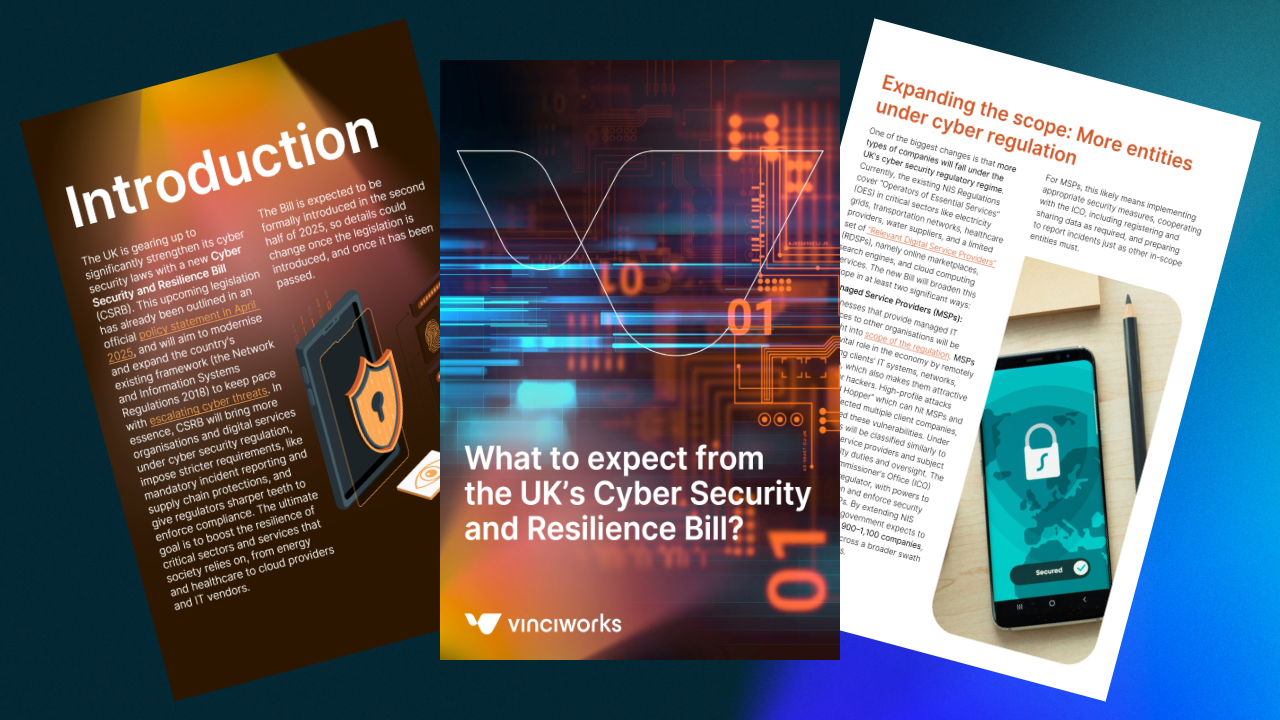A cyber security policy highlights the data you need to protect, the threats that are out there from cybercrime, and the protocol required to protect that data to result in a successfully stable organisation. The policy should create a workforce that not only knows how to reduce the chance of attack from hackers, but also prepares them to deal with a data breach should it happen, and in doing so reduces the impact it has on the company’s reputation and finances.
You should develop, review, and maintain your policy regularly so that you are not only keeping up with required legislation, but also making sure that there is consistency between your employees so that there is a level of understanding across all the business, to make sure no one is missed out and left in the dark over the severity of cyber security.
A Growing Threat of Cyber Breaches
Our reliance on technology is at an all-time high with it being revealed that we spend around 25 hours a week online, and a lot of people admitting that they accessing the internet 50 time every day. We even spend more of our day online than sleeping!
This growing ‘need’ to be online means that people are looking to take advantage and make a profit in the meantime. As technology develops, so does the deep dark world of cybercrime. The result is a sophisticated network of hacker gangs, all using their skills to gain unauthorised access to networks and con people out of money and passwords through phishing emails, all with the same incentive, to gain a profit through exploiting others.
Cybercriminals run their own black market in a highly organised way to create something that is now fetching in greater sums of money than the illegal drugs trade. The skills needed can be taught by the growing number of ‘how-to’ guides popping up online, and this accessibility alongside the money at stake means that the dark web is thriving.
Through people failing to prepare themselves for cybercrime, or simply not being trained on how to deal with it, hackers are exploiting this weakness and having success in doing so. Shockingly, criminals have attacked one in five British businesses between 2016-17, and with the British Chambers of Commerce revealing that only 24% of businesses have a security policy in place, the problem needs to be taken more seriously.

The Impact of a Breach
Cyber attacks can cause catastrophic damage to any business, and hackers aren’t fussy when it comes to picking a target, whatever size and industry, they will attack, leaving it less of a matter of if you’ll be targeted, and more of a question of when.
The most recent example is in the form of Ticketmaster UK, the popular ticket sales sites, that lost the personal and payment details of up to 40,000 customers in June 2018. The breach happened due to a third-party customer support product having malicious software that was then spread to Ticketmaster themselves, highlighting how fast malware can get into a network, and through the most unsuspecting places.
The scale has no limits, with business heavyweights being targeted just as much as SMEs. No one is safe, which is why having a strong policy is so important.
Choosing to ignore the threat could not only lead to financial and information losses, but also hefty fines from the GDPR’s new data protection legislation released in May 2018, as well as seriously damaging your organisation’s reputation and standing within the business community.
Staying Safe
By using the appropriate technology out there, as well as training employees to understand the threats of cybercrime, organisations can successfully stay one step ahead of the hackers.
Antivirus software works by finding the malware in a system and removing it systematically, as well as trying to make sure it doesn’t get in in the first place. Additionally, by equipping yourself with firewalls you are essentially hiring a controller to keep an eye of what gets in and out of a network, keeping the harmful material out.
As well as having the correct software protection installed, you need to look after it through regular updates. If you ignore the update reminders, you are putting your organisation at risk by having out of date software. It can seem like a waste of time to wait for the updates, but old software doesn’t just slow down your whole system, it leaves gaps in protection that hackers can use as entry points to expose.
When it comes to the topic of cyber protection, the responsibility of keeping all devices protected falls on everyone within the organisation. This attitude of shared responsibility and accountability is also known as a compliance culture, an environment that companies can adopt in order to go the extra mile in cybercrime prevention.
By fostering a culture where employees are regularly trained in email use/password settings/social media, the result will be a vigilant working body that is prepared to deal with any cyber threats that head their way. In doing so, it ensures that training goes beyond the legislation requirements to create a stable, safe and compliant business.













